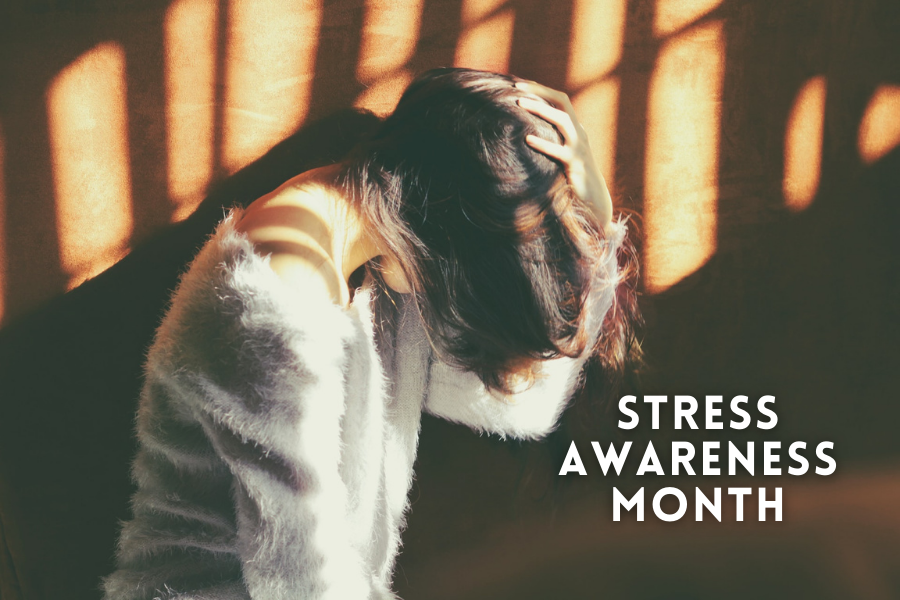Stress: my unwanted friend

Friend or foe, stress feels unpleasant. We take a look at stress in some of its many forms, and find that while feeling unpleasant, stress can sometimes be a friend as well as foe…
Cheer up! What’s the worst that can happen? Think positive… We’re pretty sure one or more of the above has been said to us all at some point but has it actually been helpful? Comments like this can often leave us feeling more stressed out than ever.
The grass isn’t always greener. Tomorrow’s a new day…Comments like these, although perhaps just as cliched, are more helpful.
If you checked out last week’s blog, we shared five tips to reduce stress. We hope you found the techniques useful. It may take time, but to consciously make better decisions when it comes to sleep, diet and fitness is the step towards a more stress-free life. The thing is, we all know what we should do for a healthier lifestyle (eat better, move more, keep organised) but often doing it is another matter. Consider this: experts say it takes 30 days to break a habit (or to start a new, healthier one). So, take it easy on yourself when you go off track a few days in. Good things take time. And now with spring finally here and lockdown restrictions easing, we can use the month of April to change some habits for the better.
Important point: we all experience stress at some point. It’s prolonged stress and our individual response to this stress (alcohol, drugs, comfort eating…) that can have a major impact on our health and lifestyle.
Fleeting moments of stress
These may include an upcoming exam, a college/university or job interview.
Ever heard the phrase “some stress is good”? The reason being when we feel stressed it triggers our ‘fight or flight’ response. The rush of adrenaline, however unsettling it may feel, spurs us to do something. Our choice can either be to fight: in this case, revise for the exam, prepare for the interview, or flight: ignore the impending exam or interview and distract yourself with something else.
We can see how the first option is actually beneficial. The second option may not sound all that bad, either. And it isn’t. As long as it’s a short-term fix. It’s when it becomes our go-to solution, it can become a problem...
This shows how stress isn’t all bad, and is actually necessary to survival. Our ancestors were the same, but instead of financial worries, COVID concerns and exams, it was hunting for food to survive and finding shelter to stay safe. Fast forward to modern day: we need money in order to buy food and have a roof over our heads. Same priorities. Different execution. It’s not surprising then that one in five UK adults have money worries, which can have a knock-on effect on our mental health.
The impact of prolonged stress
When stress is prolonged it can be damaging to our health. It may be financial worries, family problems or a demanding job. A health problem may even be the cause of concern, which is a ‘catch 22’ in itself. The NHS has a useful quiz for exploring levels of anxiety and depression. Depending on the longevity and intensity, appropriate intervention can be taken. Some may find counselling sessions helpful; for others, it may be medication. Speaking to a health professional means you’re addressing (fighting) the problem, which is a step in the right direction.
Then, there is the unknown. We feel stressed or worried a lot of the time but ‘have nothing to worry about’. Call it hereditary, a chemical imbalance, or a personality trait, we can still feel anxious and stressed for no apparent reason. And yes, when someone says, ‘what have you got to be stressed about?’, that most definitely makes you feel worse.
Fleeting or not, stress is an unpleasant feeling. But now we’ve identified the ‘good’ and the ‘bad’, we can take steps towards change.
The problem with stress is that it affects us all differently. Universally, identifying the stress is the first step to combat it. Reaching out to find support is the next, along with lifestyle changes.
In the final week of April (Stress Awareness Month), we will be sharing blogs, virtual wellbeing classes and useful tools to help reduce stress. It may not be ‘one size fits all’, but we’ll explore tried and tested techniques that you can try out yourself so hopefully you can find something that works for you. Ready. Set. Relax.
Recent
2 July 2025
East Sussex College Explores Exciting Collaboration with The People’s Mosquito
East Sussex College is excited to announce a developing collaboration with The People’s Mosquito
30 June 2025
Motor Vehicle Students Celebrate a Year of Success at Presentation Ceremony
Motor Vehicle students in Eastbourne were celebrated in style at a recent end-of-year presentation ceremony
27 June 2025
From Hastings Degree Student to Shaping the BBC’s Digital Future
Steven’s journey from a curious student in Hastings to a Senior Technical Architect at the BBC